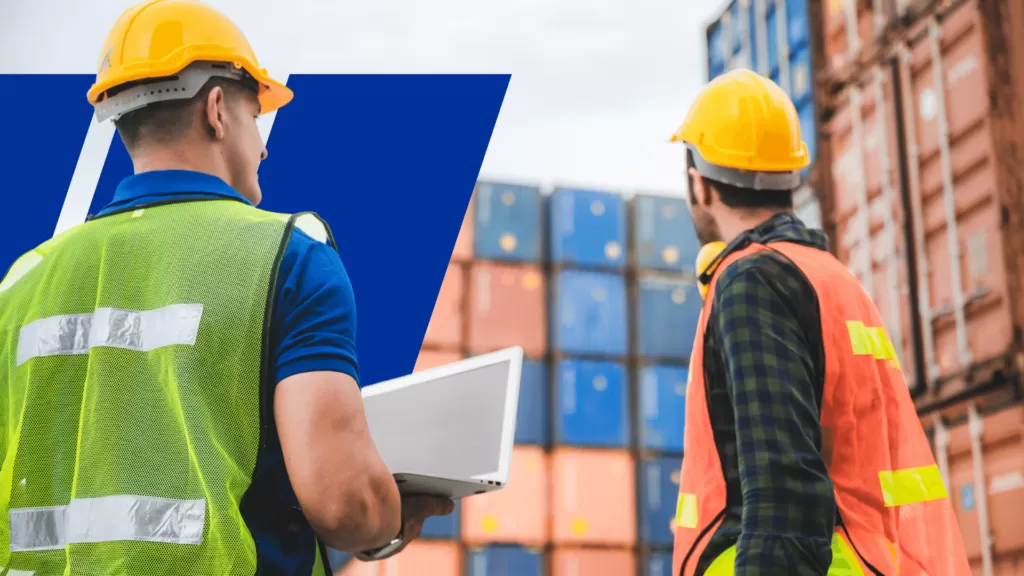Written By:
Scott McAuley
Scott is the IT Director of Texas Management Group, and has been in the IT industry for 25 years.
Choosing the right Logistics IT Support provider can feel like navigating a maze. With so many options, how do you find the one that truly fits your needs?
In today’s fast-paced logistics world, reliable IT support is crucial to keeping your operations running smoothly. But not all providers are created equal—so how do you make the best choice?
This guide will take you through 10 easy steps to help you find a Logistics IT Support provider that meets your specific needs, ensuring seamless operations and less downtime.
Ready to simplify the search process and make a smart decision? Let’s dive into the essential steps for choosing the perfect IT partner for your logistics business.
Key Takeaways
- Identify your specific logistics IT needs to ensure the provider can support operations like tracking, inventory management, and security effectively.
- Choose a provider with logistics experience who understands your industry’s unique challenges and can offer tailored, proactive solutions for seamless support.
- Ensure 24/7 support and monitoring to minimize downtime and quickly address system issues, crucial for round-the-clock logistics operations.
- Evaluate scalability options to ensure the IT provider can adapt to your business growth and support future demands without disruption.
- Review security and compliance standards to guarantee the provider implements robust measures for protecting sensitive data and adhering to regulations.
Table of Contents
10 Steps to Choosing the Right Logistics IT Support Provider

Choosing the right logistics IT support provider can significantly enhance your operational efficiency.
Here’s a guide to help you select a provider that aligns with your business needs:
| Key Consideration | Description |
|---|---|
| Assess your logistics IT needs | Identify the specific technology and support requirements for your logistics operations. |
| Research specialized providers | Look for IT providers with experience in logistics to ensure industry-specific solutions. |
| Check industry experience | Prioritize providers with a strong portfolio in logistics to ensure expertise and reliability. |
| Evaluate the range of services offered | Ensure comprehensive services such as network management, cloud solutions, and cybersecurity. |
| Verify security and compliance standards | Confirm the provider follows strict security protocols and complies with industry standards. |
| Review testimonials and case studies | Analyze client feedback and case studies to gauge the provider’s performance and reliability. |
| Confirm 24/7 support and monitoring | Ensure round-the-clock support and system monitoring to minimize downtime. |
| Ensure scalability for growth | Choose a provider capable of scaling services to support your future business growth. |
| Compare pricing models and contracts | Review pricing structures for flexibility and transparency to avoid hidden costs. |
| Schedule a consultation | Meet with potential providers to discuss your needs and evaluate their approach. |
1. Assess Your Specific Logistics IT Needs
Begin by identifying the specific technology requirements of your logistics business. Understand the challenges you face and how IT can streamline your operations, from tracking to warehouse management.
2. Research Providers Specializing in Logistics IT
Focus on IT providers that have a deep understanding of the logistics industry. Specialized knowledge ensures they are familiar with your operations and can offer tailored solutions.
3. Check Provider’s Industry Experience and Expertise
Review the provider’s experience working with logistics companies. Providers with a strong portfolio in your sector are more likely to anticipate your needs and offer proactive support.
4. Evaluate the Range of Services Offered
Ensure the provider offers comprehensive services like network management, cloud solutions, and cybersecurity. A wide range of services indicates they can support various aspects of your IT infrastructure.
5. Verify Provider’s Security and Compliance Standards
Security is critical in logistics, especially with sensitive data. Check whether the provider follows industry-standard security protocols and compliance measures to protect your data.
6. Review Client Testimonials and Case Studies
Look for client testimonials and case studies that highlight the provider’s success in similar logistics environments. This will give you insights into their performance and reliability.
7. Confirm Availability of 24/7 Support and Monitoring
Logistics operations often run around the clock. Ensure your IT provider offers 24/7 support and real-time monitoring to quickly address any issues that arise.
8. Ensure Scalability to Match Your Growth Plans
As your logistics operations grow, so will your IT needs. Choose a provider who can scale their services to meet the future demands of your business.
9. Compare Pricing Models and Contracts
Carefully review the pricing structure and contract terms. Look for flexibility and transparency to avoid hidden costs or long-term commitments that may not suit your changing needs.
10. Schedule a Consultation to Discuss Solutions
Finally, schedule a consultation with potential IT consulting providers. This meeting allows you to assess their approach, ask questions, and determine if they are the right fit for your company.
Why Choosing the Right IT Support Provider Matters? 5 Key Reasons
Selecting the right IT support provider is crucial for your business’s success. Here’s why it matters.
1. Minimizes Downtime and Operational Disruptions
An experienced IT support team can quickly address system failures, reducing costly downtime. This keeps your business running smoothly, preventing unnecessary disruptions to daily operations.
2. Ensures Data Security and Regulatory Compliance
A reputable IT provider helps safeguard your data from cyber threats, ensuring that sensitive information is protected. They also ensure that your business stays compliant with industry regulations, avoiding legal penalties.
3. Supports Scalability and Business Growth
A good IT support partner can adapt their services to match your company’s growth, enabling seamless scalability. As your business expands, they implement solutions that support long-term success.
4. Improves Efficiency and System Performance
With optimized IT infrastructure, your business can operate more efficiently, reducing manual workloads. Enhanced system performance leads to better productivity and quicker response times.
5. Provides Proactive Solutions to Prevent Issues
Instead of waiting for problems to arise, proactive IT providers monitor systems to prevent potential failures. This reduces unexpected costs and ensures that your technology operates without interruption.
Conclusion
Choosing the right Logistics IT Support provider is essential for smooth operations and long-term success.
By following these 10 steps, you can ensure that your provider aligns with your specific needs, offers reliable support, and helps your business grow.
Focus on providers with logistics expertise, scalable services, and strong security measures. This ensures your IT infrastructure is in good hands, reducing downtime and enhancing efficiency.
Take the time to evaluate potential partners, compare pricing models, and schedule consultations. A thoughtful approach will pay off in the long run.
Ready to streamline your logistics IT? Start your search today and secure a partner that drives your business forward!
Need Help Selecting the Right IT Support for Your Logistics Firm?
Dive into our blogs for actionable insights on making the best choice. Our logistics IT solutions are designed to enhance your systems and streamline your operations.
Reach out now for a customized consultation!
FAQ
What are the Key Factors to Consider When Choosing a Logistics IT Support Provider?
Key factors include industry experience, scalability, security measures, and response times.
How Can I Ensure the IT Support Provider Understands My Logistics Needs?
Ensure they have experience with logistics operations, ask for case studies, and evaluate their understanding of supply chain systems.
What Questions Should I Ask During the Evaluation Process?
Ask about their experience in logistics, response times, security protocols, and support for specific logistics software.
How Do I Compare Different Logistics IT Support Providers Effectively?
Compare based on their expertise, service offerings, pricing, customer reviews, and ability to meet your scalability needs.






